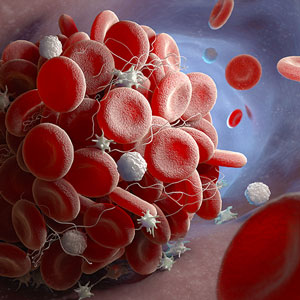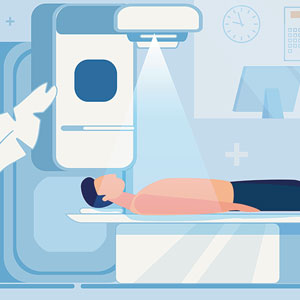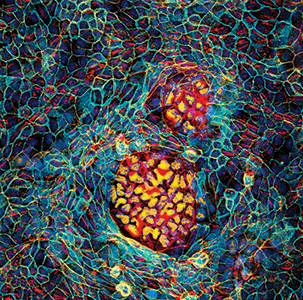Pancreatic Cancer
-
Vaccines Spark Activity in Pancreatic Cancer
Scientists thought pancreatic cancer wouldn’t respond to immunotherapy. Now research has found vaccines can trigger the immune system to fight the disease.
by Thomas Celona
-
Survivor Profile
An Inspiration to OthersKay Kays, a 30-year pancreatic cancer survivor, works to advance research and raise awareness of the disease.
by Lindsey Konkel Neabore
-
Against All Odds
At age 26, Manny Garcia was diagnosed with and fought pancreatic cancer.
by Karon Warren
-
Drafting a Medical Team
Going through cancer treatment and ensuing complications is never easy, but surrounding yourself with the right key players can help, writes pancreatic cancer survivor Rob Weker.
by Rob Weker
-
Worth the Wait
Neoadjuvant therapy—using treatments such as chemotherapy, hormone therapy or radiation to shrink a tumor or treat unseen metastases before surgery—can improve outcomes for some patients.
by Sharon Tregaskis
-
Tumor Testing May Help Guide Pancreatic Cancer Treatment
For a small group of pancreatic cancer patients who were able to receive therapies targeting the molecular alterations in their tumors, these matched therapies were associated with longer life.
by Cheryl Platzman Weinstock
-
Forward Look
More Options to Prevent Blood Clots in High-Risk Cancer PatientsUpdated guidelines support use of oral blood thinners.
by Jane Langille
-
Forward Look
New Guidelines for Radiation Therapy in Pancreatic CancerRecommendations address conflicts and research gaps.
by Ashley P. Taylor
-
The Puzzle of Pancreatic Cancer
Pancreatic cancer remains a difficult disease to treat and is expected to be the second leading cause of U.S. cancer-related deaths by 2030. Researchers hope clinical trials and insights into the genetics of the disease will reverse the trend.
by Kendall K. Morgan
-
Turning Up the Heat on Cancer
Researchers are working to expand the benefits of immunotherapy by making “cold” tumors “hot” so they can respond better to treatments.
by Kendall K. Morgan














